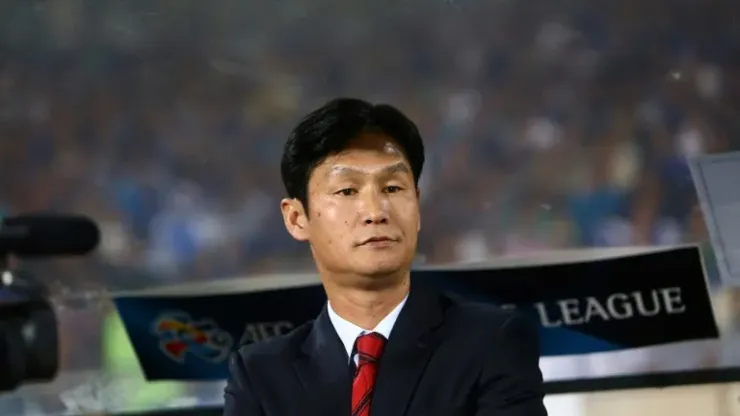Beijing (AFP) – High expectations in the big-spending Chinese Super League have triggered a spate of departures, with six coaches shown the door in the space of just one month.
More than a third of teams in the 16-strong Super League have been affected, in a season which has also been rocked by claims of racism and violence.
Jiangsu Suning, who have slumped to 15th in the table after finishing second last year, are the biggest club involved after Choi Yong-Soo departed last week.
Beijing Guoan, Tianjin Teda, Guizhou Zhicheng Chongqing Lifan and Changchun Yatai have also parted ways with their coaches in recent weeks.
It comes as the Super League enjoys unprecedented visibility, broadcasting in Britain and other countries under a new TV deal and featuring several big stars including Oscar and Carlos Tevez.
Chinese teams smashed the Asian transfer record five times in 12 months after President Xi Jinping signalled his desire to turn China into a football power.
Mark Dreyer, founder of the China Sports Insider website, said the managerial turmoil reflected the rising ambitions of Chinese clubs.
“In the English Premier League, there’s always the managerial sack race — who’s going to get sacked first?” Dreyer told AFP.
“This is just another global football trend that has come to China.
“The fact is that when you have clubs spending a lot of money, the pressure is on for them to perform, and inevitably in football, it’s the managers that get the responsibility.”
The sudden influx of well-paid foreign players has also created teething problems this season with two of them, Hulk and Ezequiel Lavezzi, accused of racism.
Shanghai SIPG’s Hulk was investigated over an alleged racially motivated assault on a rival team’s coach, a claim both he and his club deny.
Lavezzi also caused a storm when publicity photos emerged of him pulling back the corners of his eyelids in a ‘slant-eyed’ pose.
– ‘Most difficult period’ –
The managerial sackings come halfway through the season and as China approaches its summer transfer window, meaning any new coach has an opportunity to hire players and start rebuilding his team.
However, they may find their spending limited after China levied a 100 percent tax on transfer fees for loss-making clubs, in a bid to reign in player purchases.
Seventh-placed Beijing Guoan showed Spanish coach Jose Gonzalez the door after they lost to Chongqing Lifan on Friday, their fifth defeat of the season.
“Right now the team is going through its most difficult period but we are confident that we can quickly get back on track,” the club said, announcing the dismissal.
Jia Xiuquan of Henan Jianye, meanwhile, quit to “assume responsibility” for his team’s poor ranking after 12 rounds.
Henan are 14th in the table, just above second-to-last Jiangsu Suning — whose owners, Suning Commerce Group, also bankroll Italy’s Inter Milan.
South Korea’s Choi decided to “terminate his contract in advance”, according to Jiangsu, less than a year after he took the reins.
His departure was announced came last Thursday, one day after Jiangsu’s AFC Champions League exit at the hands of Shanghai SIPG.
Choi, who has gone back to his old team FC Seoul, said foreign coaches were not entirely to blame for their Chinese teams’ failings.
“Chinese players’ understanding (of football) is relatively weak” despite the clubs’ high-quality facilities and coaching staff, he said, according to the South China Morning Post.
“If you use the same tactics, Korean players will carry it out 85 percent of the time, but Chinese players will only carry it out less than 60 percent of the time, and that makes it hard for foreign coaches to display their ability.”
200+ Channels With Sports & News
- Starting price: $33/mo. for fubo Latino Package
- Watch Premier League, Women’s World Cup, Euro 2024 & Gold Cup
The New Home of MLS
- Price: $14.99/mo. for MLS Season Pass
- Watch every MLS game including playoffs & Leagues Cup
Many Sports & ESPN Originals
- Price: $10.99/mo. (or get ESPN+, Hulu & Disney+ for $14.99/mo.)
- Features Bundesliga, LaLiga, Championship, & FA Cup
2,000+ soccer games per year
- Price: $5.99/mo
- Features Champions League, Serie A, Europa League & Brasileirāo
175 Premier League Games & PL TV
- Starting price: $5.99/mo. for Peacock Premium
- Watch 175 exclusive EPL games per season






